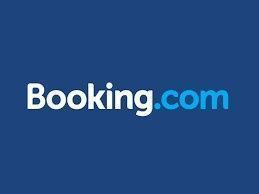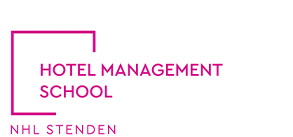
-
 publication: 20 June 2016
publication: 20 June 2016
Booking.com and Googles view on the Hotel Industry and AirBnB
by Dr. Sjoerd Gehrels
Earlier this year on ITB Berlin a very interesting session entitled “Hotel distribution platforms are changing and  innovating on an ongoing basis. What does this mean for hoteliers, OTAs and technology companies?” chaired by Wilhelm Konrad Weber, Partner, Swiss Hospitality Solutions took place. Terri Scriven, Industry Head Hospitality, Google and Peter Verhoeven, Managing Director EMEA, Booking.com discussed
innovating on an ongoing basis. What does this mean for hoteliers, OTAs and technology companies?” chaired by Wilhelm Konrad Weber, Partner, Swiss Hospitality Solutions took place. Terri Scriven, Industry Head Hospitality, Google and Peter Verhoeven, Managing Director EMEA, Booking.com discussed about how the on-line market is developing. Scriven opened the session by saying 37% of people now book their travel online and of this, 25% comes via an OTA and 12 direct. Google research shows that users access 28 different sites on average when arranging their travel. She also mentioned that people look at their phone 150 times a day on average and 40% of searches happen on a mobile device. Travel is an industry that grows faster than GDP but demand comes from multiple geographical areas so is complex to analyse. Added to that complexity is the fact that users often use multiple devices throughout their search process so multi-channel, multi-device and multi-geography all combine to make analysing and understanding consumer habits challenging. Verhoeven noted that consumers broadly fall into two categories; those that planned and booked a long time before travel and those that booked within 48 hours of travelling. Mobile is the fastest growing direct channel and “investing in mobile is critical”. Both speakers agree on the fact that the days of standing on a mountain top screaming the benefits of a brand are long gone and it’s now about engaging with customers on their level. The channel mix, and owners and operators constantly asking which channel is most profitable, is crucial. Verhoeven pointed
about how the on-line market is developing. Scriven opened the session by saying 37% of people now book their travel online and of this, 25% comes via an OTA and 12 direct. Google research shows that users access 28 different sites on average when arranging their travel. She also mentioned that people look at their phone 150 times a day on average and 40% of searches happen on a mobile device. Travel is an industry that grows faster than GDP but demand comes from multiple geographical areas so is complex to analyse. Added to that complexity is the fact that users often use multiple devices throughout their search process so multi-channel, multi-device and multi-geography all combine to make analysing and understanding consumer habits challenging. Verhoeven noted that consumers broadly fall into two categories; those that planned and booked a long time before travel and those that booked within 48 hours of travelling. Mobile is the fastest growing direct channel and “investing in mobile is critical”. Both speakers agree on the fact that the days of standing on a mountain top screaming the benefits of a brand are long gone and it’s now about engaging with customers on their level. The channel mix, and owners and operators constantly asking which channel is most profitable, is crucial. Verhoeven pointed  out that Booking.com needs hotels to be able to operate his OTA and same as Expedia is moving towards being a service provider and not only a distributor. When asked about the role of independent hoteliers, Scriven said she felt OTAs had helped independent hotels and encouraged hotels to ensure their natural and organic search optimisation is up-to-par. She also noted that hotels own a large amount of customer data which can be valuable in connecting with guests and personalising the service. There are major concerns, however, that there is a knowledge gap amongst hotel staff in accurately analysing hotel data in order to analyse behaviour. When asked about future trends, Scriven feels that the various departments in hotels need to be interlinked to avoid silos. All agreed that the channel mix and profitability by channel needs to be properly understood and it should never be forgotten that the customer experience is paramount. Another important reality is that hotel owners and operators own the product and service and so they can focus on the after arrival and before departure section of the customer experience. A joint advice by OTAs and Google is that hotel operators and owners should invest in guest satisfaction and pick their strongest battles, and outsource the rest. An interesting live audience question answered by the panellists, when asked about AirBnB being a competitor or not, and the following discussion can be found on http://ww
out that Booking.com needs hotels to be able to operate his OTA and same as Expedia is moving towards being a service provider and not only a distributor. When asked about the role of independent hoteliers, Scriven said she felt OTAs had helped independent hotels and encouraged hotels to ensure their natural and organic search optimisation is up-to-par. She also noted that hotels own a large amount of customer data which can be valuable in connecting with guests and personalising the service. There are major concerns, however, that there is a knowledge gap amongst hotel staff in accurately analysing hotel data in order to analyse behaviour. When asked about future trends, Scriven feels that the various departments in hotels need to be interlinked to avoid silos. All agreed that the channel mix and profitability by channel needs to be properly understood and it should never be forgotten that the customer experience is paramount. Another important reality is that hotel owners and operators own the product and service and so they can focus on the after arrival and before departure section of the customer experience. A joint advice by OTAs and Google is that hotel operators and owners should invest in guest satisfaction and pick their strongest battles, and outsource the rest. An interesting live audience question answered by the panellists, when asked about AirBnB being a competitor or not, and the following discussion can be found on http://ww![]() w.tubechop.com/watch/7856792
w.tubechop.com/watch/7856792




 Back to overview
Back to overview

